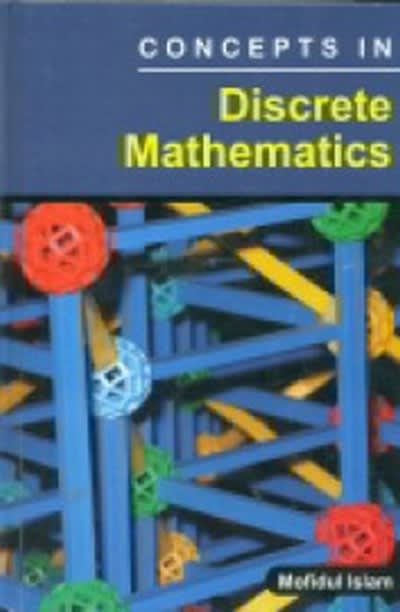Question
1) Determines which of the following probabilities to the three (3) results of an experiment are valid. P(E1) = 0.22, P(E2) = 0.33, P(E3) =
1) Determines which of the following probabilities to the three (3) results of an experiment are valid.
P(E1) = 0.22, P(E2) = 0.33, P(E3) = 0.45
P(E1) = 0.10, P(E2) = 0.25, P(E3) = 0.40
P(E1) = 0.32, P(E2) = 0.25, P(E3) = 0.40
P(E1) = 0.37, P(E2) = 0.25, P(E3) = 0.43
2) The list is presented: 3/2 , 0.85, 0.25, 0.003, 0.99 and 1.00. The value in the list that cannot be considered a probability is:
1.00
3/2
0.99
0.25
3) Determines which of the following probabilities to the three (3) results of an experiment are valid.
P(E1) = 0.22, P(E2) = 0.33, P(E3) = 0.45
P(E1) = 0.10, P(E2) = 0.25, P(E3) = 0.40
P(E1) = 0.32, P(E2) = 0.25, P(E3) = 0.40
P(E1) = 0.37, P(E2) = 0.25, P(E3) = 0.43
4) Determines the probability that an even number will come out when rolling a die.
4/6
2/6
0.16
1/2
5) Determines the probability that a number less than six (6) will come out when rolling a die.
2/3
5/6
1/6
1/2
6) If you have in an urn 10 red balls, 11 green balls, 25 yellow balls and 14 blue balls, what is the probability that you will take out a green ball?
7) If you want to select a group of athletes, you use:
Combinations
Permutations
8) The value of the combination C(82) es______.
9) The value of the permutation P(104)is:
10) For the following probability distribution, find the value of P(3).
x f(x)
0 0.34
1 0.17
2 0.21
3 ?
11) Use the binomial distribution table or formula to find the binomial probability when n = 10, p = 0.15, k = 3.
12) Using the Poisson distribution table or formula, it determines the probability when = 3, if x = 1.
13) If in a binomial distribution you have the data n= 5, q= 0.3, calculate the mean.
14) Calculate the standard deviation if in a binomial distribution you have the data n= 10, q= 0.25.
15) Consider a standard normal random variable with = 0 and a standard deviation =1. Use the standard normal distribution table to find P (Z < 2.48).
16) Evaluates 10P6.
17) Evaluates 8C5.
Step by Step Solution
There are 3 Steps involved in it
Step: 1

Get Instant Access to Expert-Tailored Solutions
See step-by-step solutions with expert insights and AI powered tools for academic success
Step: 2

Step: 3

Ace Your Homework with AI
Get the answers you need in no time with our AI-driven, step-by-step assistance
Get Started


